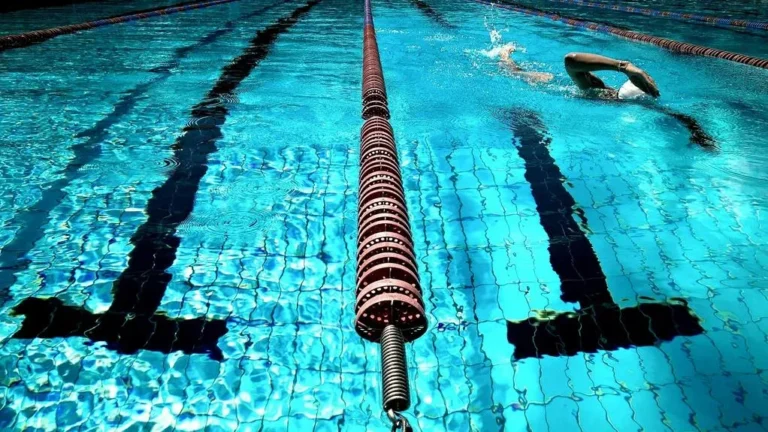During the off-season of triathlon, consider exploring alternative activities to enhance your performance when the next season approaches. Engaging in a mix of cross-training exercises, focusing on recovery, and maintaining a balanced nutrition plan are vital components for a successful return to triathlon training.
While the break may seem like a time for relaxation, strategic planning and consistent efforts during this period can make a significant difference in your overall performance and future achievements in the sport.
Best Practices for Off-Season Recovery
When transitioning into the off-season of triathlon, it is important to prioritize a structured approach to recovery that optimizes physical and mental rejuvenation for enhanced performance in the upcoming season. Focus on a quality break of 3-4 weeks, including 2 weeks of active recovery and 2 weeks of minimal activity, to allow for proper recovery.
Engage in non-sport-specific activities to relax, rest your joints, and recover mentally, promoting overall well-being. Incorporate nutrition strategies that support recovery by consuming whole, nutrient-dense foods and staying hydrated to aid in muscle repair.
During the off-season, utilize cross-training activities like swimming or yoga to maintain fitness levels while reducing the risk of overuse injuries. Set specific, measurable off-season goals, breaking them down into smaller milestones. Focus on areas for improvement identified during the season to ensure a successful return to training.
Cross-Training Activities for Triathletes
Engaging in diverse cross-training activities is essential for triathletes to enhance their endurance, strength, and overall athletic performance during the off-season. Incorporating alternative sports like MTB, indoor climbing, rollerblading, and skiing can help improve endurance and strength while providing a mental break from traditional triathlon training.
Activities such as Nordic skiing, known for boosting VO2max, offer a comprehensive workout for endurance athletes. It’s advisable to include at least one longer session of alternative sports per week to maintain fitness levels and prevent mental fatigue during the off-season.
Cross-training with different sports not only enhances performance but also helps prevent overuse injuries common in triathletes. Swimming, yoga, and strength training are excellent low-impact exercises that complement triathlon training and aid in overall physical conditioning. By diversifying training routines with various activities, triathletes can build resilience, prevent burnout, and improve their athletic abilities across different disciplines.
Nutrition Tips for Off-Season Maintenance
To optimize your off-season maintenance, prioritize whole, nutrient-dense foods that support recovery and overall health. During this period, your body requires adequate nutrition to repair and prepare for the upcoming season.
Stay hydrated to aid in muscle repair and maintenance, especially with reduced training volume. Adjust your calorie intake to align with the decreased training load to prevent unnecessary weight gain.
It’s crucial to ensure sufficient protein consumption for muscle repair and maintenance during the off-season. Consulting a sports nutritionist can provide personalized advice on nutrition strategies tailored to your needs for off-season maintenance.
Injury Prevention Strategies for Triathlon Off-Season
Incorporate hip strength exercises and plyometric drills into your off-season routine to proactively prevent running injuries in triathlon training. By focusing on strengthening the hips, you can enhance stability and support for your lower body, reducing the risk of common overuse injuries.
Additionally, include aqua jogging and dry running in your regimen to maintain running muscles while minimizing impact on joints. Emphasize functional training that mimics triathlon movements to improve overall performance and prevent muscle imbalances.
It’s crucial to avoid overloading running muscles during the off-season; gradually increase running intensity to prevent overuse injuries. Cross-training with activities like swimming or cycling can help maintain cardiovascular fitness without overstressing running muscles.
Prioritize injury prevention through a balanced approach of strength training, functional exercises, and gradual running progression to ensure a smooth transition into the next triathlon season.
Mental Preparation for the Next Season
Reflect on your past season’s achievements and setbacks to strategically prepare mentally for the upcoming season. Use this time to analyze your race performances, training methods, and areas for improvement. By reflecting on past experiences, you can create a plan to work on your weaknesses and build on your strengths for the next season.
Incorporate visualization techniques into your routine to mentally prepare for future races. Visualizing successful races can help enhance your performance and boost confidence. Maintaining a positive mindset during the off-season is crucial for staying motivated and focused on your goals. Consider integrating mindfulness practices to improve focus, reduce stress, and keep your mind sharp.
Setting specific off-season goals that are measurable and achievable will help you track your progress and ensure you’re working towards improvement. By combining mental preparation, visualization techniques, positive mindset, mindfulness practices, and setting off-season goals, you can set yourself up for a successful upcoming season.
Conclusion
As you wrap up your off-season training, remember that every step you take now will pave the way for success in the upcoming triathlon season. By focusing on recovery, cross-training, nutrition, injury prevention, and mental preparation, you’re setting yourself up for peak performance.
Embrace this time as an opportunity to fine-tune your skills and come back stronger, faster, and more prepared than ever before. The off-season isn’t a break – it’s a strategic investment in your triathlon future.
